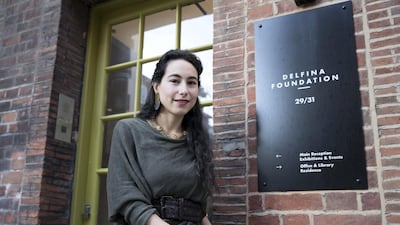"In the Middle East, non-profit organisations tend to be the default institution," says Palestinian-British curator Salma Tuqan. "We lack public arts councils and so on, and so you tend to have artist-run spaces, or small spaces that are privately funded, that end up being the nucleus that supports the ecosystem."
Tuqan is the newly appointed deputy director of the Delfina Foundation, an organisation in London that quietly crops up, Zelig-like, on a global roster of art events, and which has had a historical focus on the Middle East. In 2017, director Aaron Cezar appeared at the Dhaka Art Summit, judging the Samdani Art Award. In March 2018, Delfina announced a partnership with the Jeddah and Dubai-based organisation Art Jameel, collaborating on residencies across the two organisations. In three weeks, Delfina will appear at the 2019 Venice Biennale, in a rare collaboration between the Biennale di Venezia organisation and an outside party, with a programme of performances it has curated for Ralph Rugoff's international exhibition by artists such as Alex Baczynski-Jenkins, Paul Maheke and Zadie Xa.
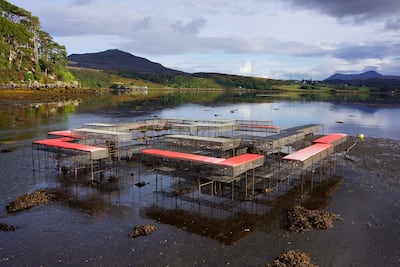
The Delfina Foundation itself is squirrelled away in a surprisingly quiet neighbourhood in what should be a tourist corridor between Buckingham Palace and Scotland Yard. The streets are cinematically picturesque: lanes of red-brick townhouses, dark leaden window panes and chimneys rising towards the sky. The organisation is the brainchild of Delfina Entrecanales, a quiet, modest woman who was made a Commander of the Most Excellent Order of the British Empire in 2012 for her contribution to the arts. I once watched her move across a crowded corridor in Art Dubai; she slipped among the madding throngs like a leaf borne serenely downstream.
The foundation is the second of two art enterprises she has set up. With her husband at the time, Digby Squires, Entrecanales first launched the Delfina Studio Trust in a former chocolate factory in Bermondsey, London, where it became an important site of subsidised studios for the Young British Artists generation. Mark Wallinger had a studio there, as did Tacita Dean and Anya Gallaccio, among others. When her marriage to Squires ended, Entrecanales closed the trust, but maintained the idea of, as she is famous for saying, “collecting artists, not art”, and continued to nurture studios. She launched the Delfina Foundation in 2008 with a more international focus than its previous incarnation – and in particular with a focus, though never explicitly stated as such, on the Middle East.
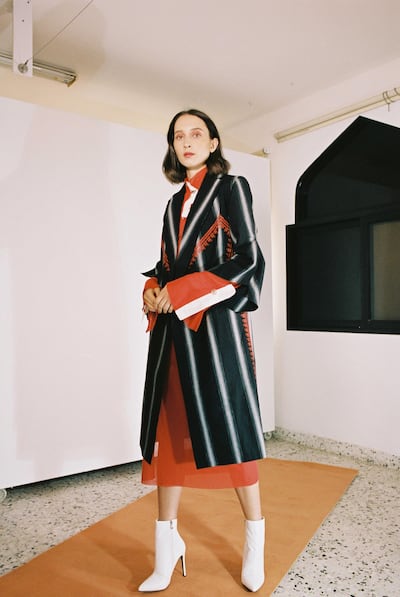
Part of that, Cezar explains, was due to what Delfina could offer internationally at the time. It was an atmosphere "soon after the launch of Art Dubai and plans for Louvre Abu Dhabi and Guggenheim Abu Dhabi were announced", he says, and Delfina identified "that in between the market and colossal museums, there was very little space for artists to develop and experiment". Delfina partnered with Art Dubai on the A.I.R programme, and with Decolonising Architecture on a residency programme for British artists and architects who would work in Palestine. "Since then, we have branched out, working globally rather than working in isolation with the Mena region, supporting conversations across culture," Cezar says.
The appointment of Tuqan as Delfina's first deputy director shows how the organisation is growing, as well as its strong roots in the region. Tuqan also comes out of early Art Dubai – she notes, as everyone does when they talk about the mid-2000s in the Dubai art world, the sheer excitement of those days – where she helped set up partnerships between the institutions and brought new collectors. Subsequently, she was the curator for contemporary Middle East design at the Victoria & Albert, London's design museum, where she was also the first person to be appointed to that role. There, she says, she worked across the institution's departments to bring display opportunities to work from the Middle East, and to help acquire items from the region in the collection, such as work by Najla El Zein and the Dubai-based designer Faissal El-Malak.
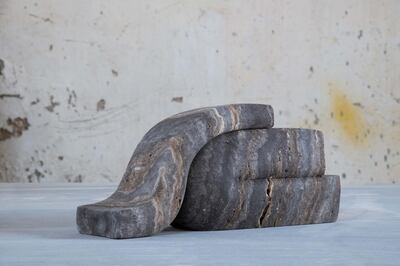
“In the eight years that I was with the V&A, I tried to really embed the Middle East in the museum rather than ghettoise it,” she says. “I wanted to raise the profile of the Middle East through partnerships in the region, but also so that, as a visitor when you came to the museum, you’d be used to seeing the work of Middle East practitioners, either in a one-off display or in the permanent collection.”
More broadly, though, she says it was about using her position to further the legacy for the work itself. Before she left, for example, she acquired one of the rare costume designs made in the 1980s by Egyptian artist Chant Avedissian, who died last year. "The acquisition is just the starting point," she says. "What follows is developing much more scholarship on that period in Chant's life. These costumes were developed in the late 1980s, and many collectors of Chant's work, even in Egypt, don't know about this part of his work. The acquisition is just the starting point for much more study and to integrate him into the canon. It will be followed by interviews and more opportunities to loan out the work, and to create more awareness."
At Delfina, Tuqan will continue to help the organisation build partnerships abroad and with new audiences in Britain. While other cultural organisations are retrenching, Delfina is growing. In 2014, it bought the neighbouring terraced house, doubling the amount of studio space it can offer, and it has also expanded how it thinks about residencies, which remain the core theme of its activities. For Collecting as Practice, launched in 2017, Delfina examined the theory, skill and psychology behind building a cohesive collection, with such collectors-in-residence as businessman Elie Khouri, who works in Dubai, and the Sharjah intellectual Sultan Sooud Al Qassemi.
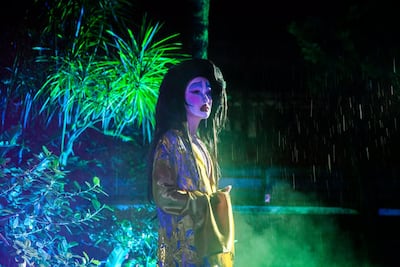
"Delfina has provided a massive amount of support to regional practitioners," says Tuqan. "When I joined the V&A, I was asked to be a strategic advisor to the organisation, and I also collaborated with Delfina on artists' presentations at the museum, so the move over felt very natural."
Tuqan was born in Kuwait to a prominent Palestinian family; her father was raised in Beirut and her mother in Libya, where her father, a judge, had been invited to help write the constitution. She moved with her parents to the UK when the Iraq War broke out, and went to boarding school there from the age of 12. In many ways, her family's experience encapsulates the multifaceted identities across the Middle East, as well as how far the migratory experience extends.
"I sometimes envy people from somewhere," she says. "At the same time, I'm finally making peace with Maya Angelou's comments that, 'You only are free when you realise you belong no place – you belong every place'.
“You can’t change world politics or what is happening, but maybe stepping out of it and saying you are part of something that is bigger is better than thinking you are not privy to something.
“But it’s a hard emotion. It’s like living with a wound.”
